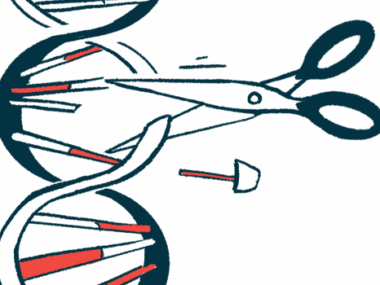New European alliance to advance rare disease diagnosis, care
ERDERA seeks to help improve lives of 30M rare disease patients in Europe
Written by |

The European Rare Diseases Research Alliance (ERDERA) was launched officially last week with the vision to offer better diagnosis and treatment for the 30 million people living in Europe with a rare disease like aromatic L-amino acid decarboxylase (AADC) deficiency.
Coordinated by the National Institute of Health and Medical Research (INSERM) in France, the initiative brings together more than 170 organizations from 37 countries, aligned in their mission to bridge gaps between research and patient care, reduce fragmented data, and promote a more unified approach to innovation in rare diseases.
ERDERA has an estimated budget of €380 million (about $407 million), with the European Union (EU) contributing €150 million (about $160 million) via its key funding program, Horizon Europe. The remaining funding comes from European member states, other countries participating in Horizon Europe, and public and private in-cash and in-kind contributions.
Irene Norstedt, director of the People Directorate of the Directorate-General for Research and Innovation at the European Commission, stressed the lasting dedication of the EU to advancing research on rare diseases, according to a news story from ERDERA about the launch event on Oct. 28.
Billions invested in collaborative research
“Proof of this is the substantial investment in rare diseases research that we have done over the last 20 years,” Norstedt said. “We have invested more than €3 billion [$3.2 billion] in collaborative research. This has translated into better diagnosis and to the development of several new orphan medicines.”
AADC is a genetic disease that affects the way nerve cells communicate with other cells, causing a delay in development and other symptoms such as muscle weakness and stiffness. Like AADC, many other rare diseases lack effective treatments, and patients often experience long, difficult journeys to receive an accurate diagnosis.
ERDERA seeks to offer faster diagnosis for identified rare diseases or inclusion in a diagnostic pipeline for unknown ones, and new medications to the currently 95% of rare diseases with no treatment option available.
It is building on progress from previous EU-funded initiatives like the European Joint Program on Rare Diseases (EJPRD), which ran for the past five years. The new alliance will also work to improve diagnostics and treatments through a clinical research network built on the expertise of 24 European reference networks.
Besides helping to align research strategies across countries, especially in those that are still developing their national plans on rare diseases, ERDERA will provide financial support to research projects such as the one led by Michael Schmück-Henneresse, PhD, from the Berlin Institute of Health at Charité (BIH) in Germany.
Working in collaboration with Mitchell Thorn, PhD, a senior principal scientist at Pfizer, Schmück-Henneresse will design molecular and cellular platforms to monitor immune responses to advanced therapy medicinal products, or medications based on genes, cells, or engineered tissues, using lab and animal models.
Project seeks to understand how body mounts immune response to therapies
Their research project will focus on using standardized tests that can be run in different labs, no matter the technology available, to better understand whether and how the body mounts an immune response to gene, RNA-, and protein-based therapies, which is essential for making treatments safer and more effective.
“We are laying the foundation for reliable comparisons between laboratories,” Schmück-Henneresse said in a BIH press release. “Our feasibility studies will identify specific challenges in the characterization of rare immune events, providing a basis for formulating strategies to prevent unwanted immune responses.”
Taking over the resources and activities of the EJPRD, ERDERA will continue providing an educational program that includes both existing and new modules. This program is aimed at individuals across all stakeholder groups, including patients, who play a key role participating in studies and helping to understand the impact of rare diseases for informing policy decisions.
Daria Julkowska, PhD, who is coordinating ERDERA at INSERM, closed the official launch event with a call for society at large to raise awareness about rare diseases.
“Help us by raising awareness about rare diseases,” Julkoswla said, adding a direct appeal to researchers, policy makers, and industry leaders. “If you are a researcher or a young person choosing your scientific or medical pathway, … your innovative ideas could help improve the lives of the over 30 million people in Europe living with a rare disease. If you are a policy maker, think about how supporting rare diseases contributes to the values that you support on a daily basis, like justice equity, solidarity and brotherhood.”







